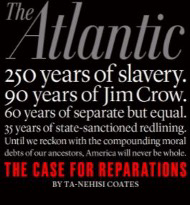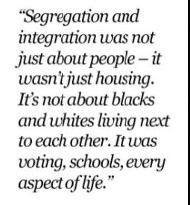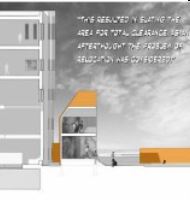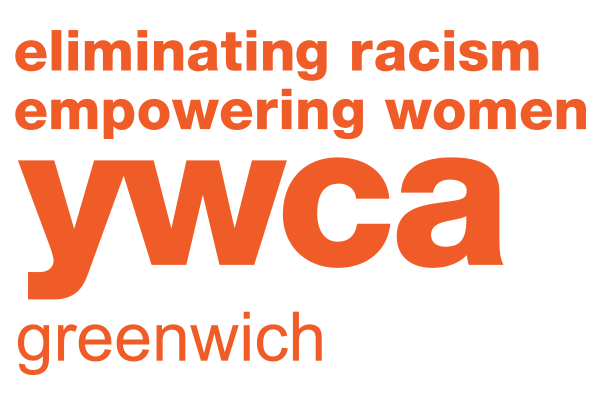Week 1: Understanding Race & Racism
Race and racism are two words used with great frequency that can mean very different things to different people. To dismantle racism, we need to understand its origins and its various dimensions. We know race and racism are most often discussed in this country as a Black/White paradigm, but racism affects everyone, and it affects Indigenous, Latinx, Asian Americans, and other People of Color in unique and profound ways. We encourage you to use the Pause & Process PDF to support reflection about today’s challenge.
- Watch: The Origin of Race in the USA (Origin of Everything, PBS)
- Read: Definition of Race (Center for Racial Justice in Education)
- Read: An excerpt from “Latino/As, Asian Americans, and the Black-White Binary” (Linda Martín Alcoff, The Journal of Ethics) - "The discourse of social justice in regard to issues involving race has been dominated in the U.S. by what many theorists name the "black/white paradigm," which operates to govern racial classifications and racial politics in the U.S., most clearly in the formulation of civil rights law but also in more informal arenas of discussion. Juan Perea defines this paradigm as 'the conception that race in America consists, either exclusively or primarily, of only two constituent racial groups, the Black and White ... In addition, the paradigm dictates that all other racial identities and groups in the United States are best understood through the Black/White binary paradigm’."
- Watch: A Conversation with Native Americans on Race(The New York Times)
- Read: A Quick Reference Guide to Indigenous Terminology (Akomawt Educational Initiative)
- Read: Wait a minute, America! 'This land is stolen land' (Niya DeGroat, Indian Country Today)

We have included information about Indigenous People in this week’s content because we recognize the ways colonialism, western expansion, and ongoing attempts to erase Indigenous People are intertwined with white dominant ideologies in the United States.
- Read: In Their Footsteps(Tina Kelley, New York Times)
- Find out what Tribal land you live on: Native Land
- Watch: Why the US celebrates Columbus Day(Vox)

- Read: ‘The Humanity of Blackness' Missing From History Classes: How to Transform Black History Education in Schools(Cathy Rainone, NBC Philadelphia)
- Read: Our democracy’s founding ideals were false when they were written. Black Americans have fought to make them true.(Nikole Hannah-Jones, New York Times)
- Read: Definition of Racism(YWCA Greenwich & Center for Racial Justice in Education)
- Watch: “The Sum of Us” & The True Cost of Racism(Heather McGhee, The Daily Social Distancing Show) Purchase the book here
- Read: Cost Of Racism: U.S. Economy Lost $16 Trillion Because Of Discrimination, Bank Says(Adedayo Akala, NPR)
Week 2: Manifestations of Racism
This week, we will deepen our understanding of racism as a system with four dimensions—institutional, structural, interpersonal, and internalized. We challenge and encourage you to think about how these dimensions of racism have and are showing up in your personal, educational, professional, and community life. The challenges will also focus on how racism impacts different racial and ethnic groups. Remember, racism is a system that was created which means it can be undone to make room for a more just and equitable society.
We encourage you to use the Pause & Process PDF to support reflection about today’s challenge.- Read: The Four Dimensions of Racism(Race Forward)
- Read: What is whiteness? What are its key features?(Alberta Civil Liberties Research Centre)
- Watch: Debunking The Most Common Myths White People Tell About Race(Robin DiAngelo, Think, NBC News)
- Read: The long history of racism against Asian Americans in the U.S.(Adrian De Leon, The Conversation, PBS News Hour)
- Read: Why we must talk about the Asian-American story, too(Brando Simeo Starkey, The Undefeated)
- View: I Still Believe in Our City(Amanda Phingbodhipakkiya, Artist). After a wave of anti-Asian discrimination, the artist Amanda Phingbodhipakkiya wanted to “turn these hurts into something beautiful.” Her panels will transform a Brooklyn subway station.” – Lauren Messman, New York Times
- Read: Latino Americanos, Fechas Importantes(PBS) – If you would like this information translated to English, please click the Inglés option in the upper right-hand corner of the website.
- Watch: The Birth and Growth of Racism against Mexican-Americans(American Experience, PBS)
- Read: On The Census, Who Checks 'Hispanic,' Who Checks 'White,' And Why(Gene Demby, Code Switch, NPR)
- Watch: A Conversation with Latinos on Race(New York Times)
WARNING: The two Vox videos include graphic images and language about violence against Black Americans. We know depictions of violence perpetrated against Black bodies and People of Color have become all too common, and we know racial violence affects Black Americans’ mental health. We have included readings, in addition to video, about the massacres in North Carolina and Oklahoma. We encourage you, particularly People of Color, to take care of yourself and opt-out of any content you find troubling.
- Watch: When white supremacists overthrew a government(Vox) - You can also read: The Lost History of an American Coup D’État (The Atlantic)
- Watch: The massacre of Tulsa's "Black Wall Street"(Vox) - You can also read: ‘Black Wall Street’: The history of the wealthy Black community and the massacre perpetrated there (Tom Huddleston Jr., CNBC Make It)
- Watch: Explained, Racial Wealth Gap(Netflix)
- Watch: Ta-Nehisi Coates’ full opening statement on reparations at House hearing(PBS)
- Read: Six times victims have received reparations--including four in the US(Dylan Matthews, Vox)
- Read: The Thorny History of Reparations in the United States(Erin Blakemore, History.com)
- Read: A Case for Reparations (Ta-Nehisi Coates, The Atlantic)

Week 3: Zoning & Housing
This week, we will look at the role of racism in zoning and housing decisions past and present. Decisions about the spatial and physical characteristics of cities across the country have influenced and determined what we build, where we build, the quality of the built environment, and who has access to certain places. Communities throughout the country are struggling with the “why” and “how” of designing and building more inclusive communities, and zoning and housing affordability have taken center stage. Woven into our struggle is a legacy of racism with present-day consequences that we must acknowledge and repair to have just communities by design.
We encourage you to use the Pause & Process PDF to support reflection about today’s challenge.- Watch: Segregated by Design(Richard Rothstein, Segregated by Design)
- Read: Past Racist “Redlining” Practices Increased Climate Burden on Minority Neighborhoods(Daniel Cusick, Scientific American)
- Read: Systemic Inequality: Displacement, Exclusion, and Segregation(Danyelle Solomon, et al., Center for American Progress)
- Watch: How highways wrecked American cities(Vox)

John R. Logan, sociology professor, Brown University specializing in housing discrimination.
- Read: Indian Country’s Housing Crisis is a Public Health Crisis(Joseph Kunkel, Aspen Institute)
- Read a Course Description: Advanced Design Studio: De-Colonizing Indigenous Housing (Chris Cornelius & Aaron Tobey, Yale School of Architecture)
- Read & Watch: Reconstructions - Reimagining Blackness and Architecture(MoMA Magazine)
- View: Mapping Inequality – Redlining in New Deal America(Digital Scholarship Lab, University of Richmond). Note: To view the maps individually, click on the three diamonds on the upper right-hand side of the page, then click on a specific map.
- Read: How restrictive zoning shut the middle class out of Greenwich, Conn.(Nicholas Abbott, Brookings)
- Read: Fairfield County Housing Accessibility and Affordability(Walker et al., Urban Institute)
WARNING: The Vox video includes acts of violence against people from the AAPI community that are deeply disturbing. As we have shared with previous challenges, take care of yourself and opt-out of any content you find troubling. Should you want/need to skip this content, the most graphic content starts at the 10:54 mark and ends at the 11:18 mark.
- Watch: The surprising reason behind Chinatown's aesthetic(Missing Chapter, Vox)
- Watch: Hip hop as a culture can influence architecture(Sekou Cooke, MoMA Magazine)
- Read: Reimagining an Antiracist America—Starting with Our Neighborhoods(Margery Austin Turner & Solomon Greene, Urban Institute). Note: This is a resource-rich article. We hope you will click on the links within the article to learn more.

Sekou Cooke. We Outchea: Hip-Hop Fabrications and Public Space. 2020
Week 4: Practicing Anti-Racism
For the past three weeks, we have provided content to help us get on the same page about race and the pervasiveness of racism in the United States. While the topic of racism may cause great discomfort for many people, denying or ignoring it will not make it away nor will it move us toward anti-racist systems and structures. During our final full week together, we will explore what it means to practice anti-racism. We challenge you to remember that anti-racism work is both internal and external work. It is a process that leads to outcomes. It is lifelong work, not a seasonal project or feel-good endeavor. We invite you to carry the words of author Ijeoma Oluo with you throughout this week’s challenge: “The beauty of anti-racism is that you don't have to pretend to be free of racism to be an anti-racist. Anti-racism is the commitment to fight racism wherever you find it, including in yourself. And it's the only way forward.”
We encourage you to use the Pause & Process PDF to support reflection about today’s challenge.- Watch: Ibram X. Kendi: Creating A More Equitable Society Is In White Americans' Self Interest(The Late Show with Stephen Colbert)
- Read: Children Notice Race Several Years Before Adults Want to Talk About It(Jessica Sullivan, PhD and Leigh Wilton, PhD, American Psychological Association)
- Read: From White Racist to White Anti-Racist: White Anti-Racist Identity Development(Tema Okun, dRWORKS)
- Read: Interview with endawnis Spears on Land Acknowledgment, Native Communities and the Role of the Humanities Today(Federation of State Humanities Councils)
- Read: What are land acknowledgments and why do they matter?(Selena Mills, Local Love)
- Read: For Our Future: An Advocate’s Guide to Supporting Indigenous Peoples’ Day(IllumiNative). This is a shortened version of this document.
- Read: White Privilege: Unpacking the Invisible Knapsack (Peggy McIntosh, seed, Wellesley Centers for Women)
- Allyship & Accompliceship. We invite you to hold space for both terms for learning.
- Watch: 5 Tips for Being An Ally(@chescaleigh, Franchesca Ramsey)
- Watch: D-L Stewart Allyship/Accompliceship(UNT Institutional Equity & Diversity)
- Watch: Ta-Nehisi Coates on words that don't belong to everyone(We Were Eight Years in Power Book Tour, Random House)
- WARNING: The following video includes acts of violence against Black women that are deeply disturbing. Please take care of yourself and opt-out of any content you find troubling. Should you want/need to skip this content, it starts at the 16:26 mark and ends at the 16:46 mark. Watch: The urgency of intersectionality(Kimberlé Crenshaw, TED)
- Read: Continuum on Becoming an Anti-Racist Multicultural Organization(Crossroads Ministry, Adapted from the original concept by Bailey Jackson and Rita Hardiman, and further developed by Andrea Avazian and Ronice Branding)
- Read: Definition of Anti-Racism and Racial Equity (Dr. Ibram X. Kendi; Racial Equity Tools)
- Read: How a Shared Goal to Dismantle White Supremacy Is Fueling Black-Asian Solidarity (Kat Moon, TIME)
- Watch: "Stand Up" - Official Music Video (Performed by Cynthia Erivo - HARRIET)
- Listen: Anneliese Singh Author of The Racial Healing Handbook(Abolitionist Teaching Network presents Teaching to Thrive)
Week 5: Now What?
Racial equity is a process and an outcome. Practicing antiracism means working daily to unlearn ways of thinking and being that are rooted in white supremacy culture. It also requires us to foster inclusive ways of thinking as we work to co-create a future where racial identity does not determine our quality of life, access to opportunities, and/or life outcomes. What you have done over the past four weeks is one step in the life-long journey that is undoing racism. What happens next is up to you.
We will not ask you to make commitments that exist without accountability as such an act rings hollow. We invite you to join YWCA Greenwich in our mission to eliminate racism and empower women by attending our community awareness events, participating in our DEI and antiracism workshops called DIVE, and supporting our policy priorities. We will continue to provide opportunities for you to co-create a more just and equitable Greenwich, Connecticut, and society, but the work is bigger than us and is happening in many places. If you are searching for a place to start dismantling racism, look no further than your family, friends, sphere of influence.- Read: Developing a Liberatory Consciousness(Barbara J. Love)
- Read: Quote by Danielle Coke (@ohhappydani, Instagram)
- Review & Invest: A Reading List on Race for Allies Who Want To Do Better(Arielle Gray, wbur)
- Review & Invest: Reading List(Organizing White Men for Collective Liberation)
